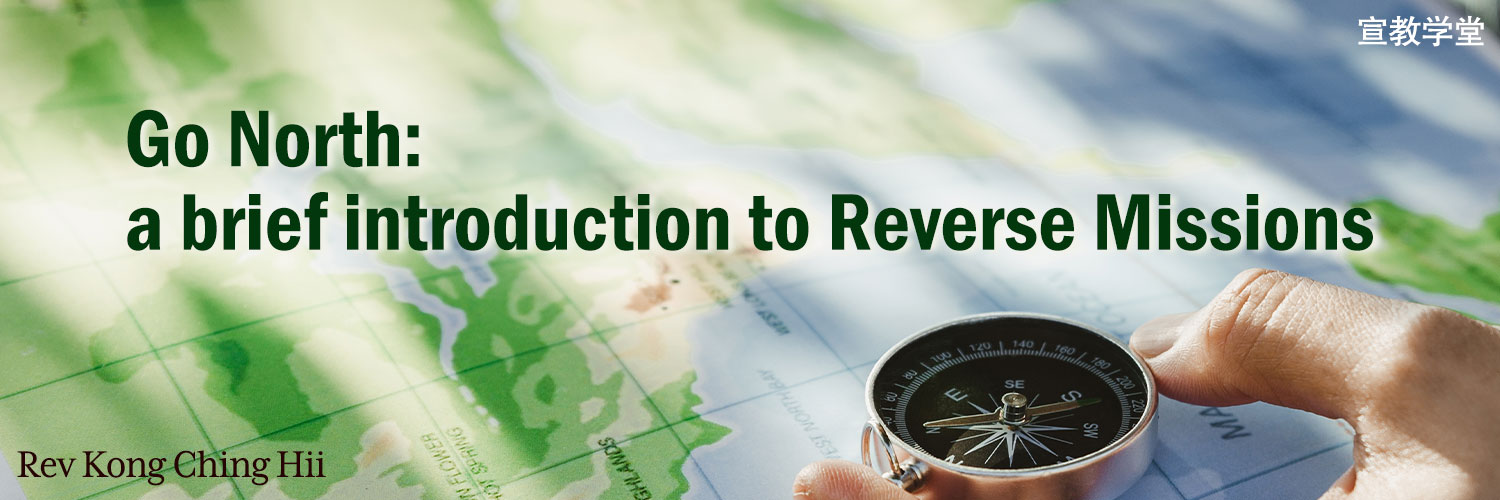
The year 2023 marks the twelfth year of our dedication to a mission field in the Global North. My family and I still find it challenging to accept the fact that we are in a Christian nation, once a missionary sending country but now has only 46.9% Christian population. The church here is constantly welcoming ordained pastors from oversea to fill the vacancies. Furthermore, the church also finds it overwhelming to preach the gospel in a pluralistic and diversified society.
The concept of missions has long been associated with sending missionaries from the church to convert the heathen in the foreign lands. However, in recent years, there has been a growing shift in missions strategies, known as reverse missions or “missions in reverse.” Reverse missions involve believers from the Global South, traditionally the mission field, being sent to the Global North, which was often considered the mission-sending region.
The basis for reverse missions rests on the foundation of Missio Dei, which means “the mission of God.” It emphasizes the nature of God and his passionate desire to redeem all mankind. The goal of the church is to call and to send believers to cross every possible barrier to fulfill the imperative task. And this must be done with intentional, dedication and long-term commitment spirit.
Reverse missions emphasize and promote the importance of mutual learning and partnership between the sending and receiving church. Every culture and context have its unique gifts, experiences, and perspectives to offer. Therefore, engaging in the reverse missions will enable both churches to foster understanding, cultural exchange, and mutual respect as they collaborate and learn from one another.
In the recent year, the resurgence of religions is prominent especially among the declining of Christian population in the Global North. This could be driven by the influence of secularism, individualism and pluralism. As a result, Christianity has been under threat and or driven out of the mind of many. If the Son of God, Jesus left the glory of heaven and became incarnate, dwelling among mankind to reconcile them to God, every believer must actively engage with the society through proclamation, teaching, and signs and miracles. In return, to actively equip and empower every new believer to becoming an agent of transformation.
The church is known to be a self-centered or inward-looking community. In order to mobilize every believer for reverse missions, the church must intentionally provide theological education and hand on experience for the believers. This could be done via theological curricula and sermons, short term field trips and workshops, and intercessory ministry. The believer will embrace the biblical principles of Missio Dei when there is a paradigm shift. They shall be propelled to reach out to the tribes and nations when they see the needs in the North.
It is essential for the sending church to work with other churches and or mission agencies. The Board of Missions (MB) of Sarawak Chinese Annual Conference has expressed her commitment to collaborate with other churches and agencies around the globe. These partnerships are based on mutual respect, shared vision, and open communication. The partnerships have fostered relationships that go beyond mere financial support, but to facilitate cultural exchange, training opportunities, and collaborative projects that promote reciprocal learning.
This year marks the 26th anniversary of the launch of oversea missions by MB. MB has commissioned more than 70 long term missionaries to different corners of the world. As one of the commissioned candidates, I have tasted the joy of going froth and witnessed the power of the gospel among the new believers. This is possible with the constant support and encouragement from the sending church. The leaders and believers of the local church have been inspired and encouraged by the commitment of MB. Some of them are willing to be equipped and empowered to be the witnesses among their own social network. We hope they will also go further in the future.
In the process of mobilization, special emphasis is given to the understanding the dynamic of cultural diversity. All who involves in the mission are equipped with fundamental cultural knowledge and creative skills to adapt in the mission field. Hence, training programs that incorporate social, economic, and spiritual input shall be made readily available for them. Similarly, we must not forget to remind the believers to maintain their own cultural identity and to express their faith in culturally relevant ways.
Reverse missions challenge the traditional concept of missions by encouraging the Global South to actively participate in sharing the gospel and addressing the needs of the Global North. I have the joy to witness the transformative power of the gospel. As the church is committed to Missio Dei, she must desperately promote the joy of mutual learning, and to deploy incarnational witness beyond the church. In return, the church shall experience a positive shift that fosters mutual growth, cultural exchange, and a renewed understanding of God’s mission for all.
